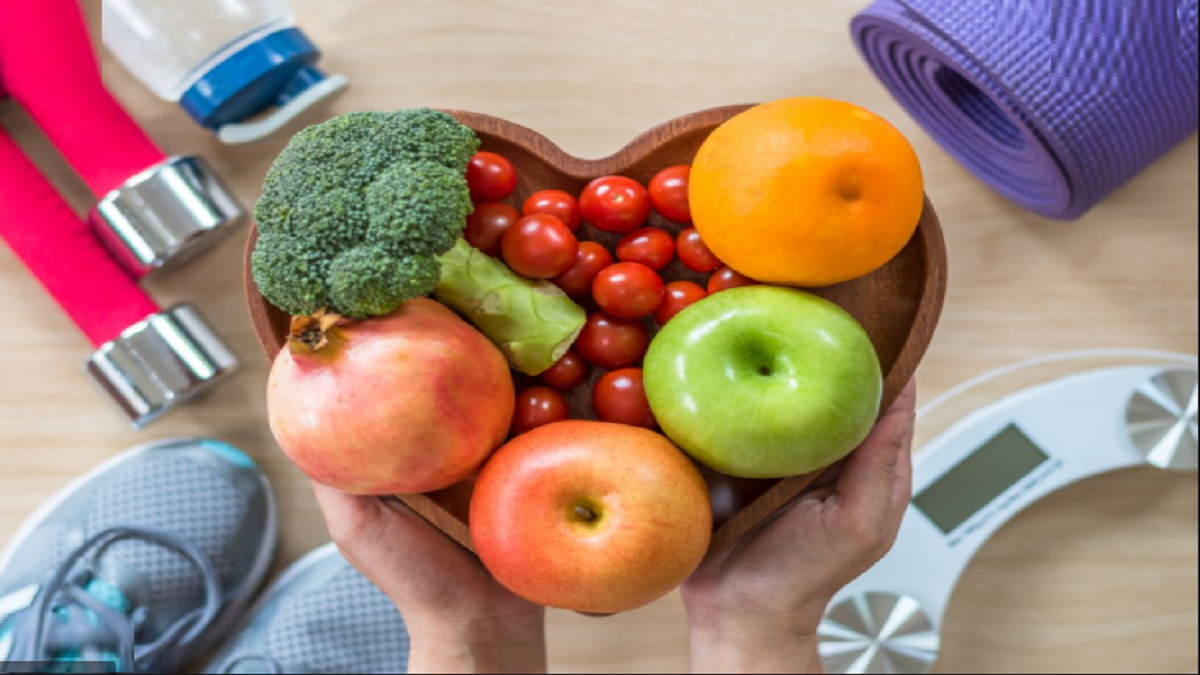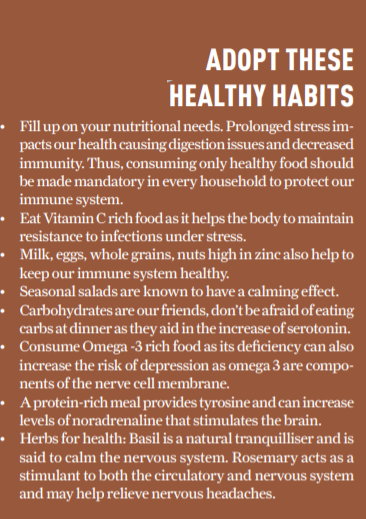


In Covid-19 or in times of such unique circumstances, there’s not a single age group that is unaffected from its dire consequences—be it on the physical, emotional, social or professional fronts. When facing stress,the body’s automatic stress response system is triggered, setting the stage for decreased immunity and increased vulnerability to illnesses ranging from common cold to heart attack and cancer. These can manifest in various ways through physical and psychological symptoms. Inactivity, sedentary life- style, fatigue or tiredness, loss of energy, digestive issues, changes in appetite like binging or starving and even orthopaedic issues are some of the physical symptoms. Whereas psychological symptoms include feeling fearful, stress, anxiety, loss of motivation or a change in sleeping pattern, effects on the social front like a threat to survival in the face of such circumstances that can range from losing a job to drowning in debts and more. Uncertainty over when will the situation change or how things will turn out and even not being able to maintain social relationships.
To deal with these symptoms, people resort to unhealthy coping mechanisms: increasing intake of alcohol or caf- feinated beverages, binging on junk food and even addictions such as smoking. This can have extreme ill-effects on the body in the form of myriad health problems including weight gain or weight loss. This can also interact with many medications leading to drastic effects on the well-being of the body. Binging on fast food or fried food often, especially those high in saturated fats, are bad for your health.
Follow these rules for stress-free periods
Stress cannot be dealt with on an empty stomach. Eat slowly as gulping down food is linked to both digestive issues and stress. Follow a healthy nutritional diet and refrain from dieting during stressful times. Decrease and limit the consumption of alcohol and caffeinated beverages as it has can lead to mood swings and sleep issues. Avoid foods that provide discomfort to the body system. Treat yourself to healthier alternatives of mood-boosting foods that can be dark chocolate, home-jaggery peanut laddoos, air fried potato fritters or fox nut chat.

Simple ways to reduce stress
• Stick to a healthy balanced diet with regular small meals at regular intervals
• Practice mindfulness, yoga, meditation and deep breathing
• Exercise regularly as it aids in the increase of endorphins
• Listen to music
• Make a to-do list to stay motivated through out the day
• Seek help from family, friends and counsellors
• Spending time with pets also regulates one’s mood
The writer is a clinical nutritionist at BLK Super Speciality Hospital.